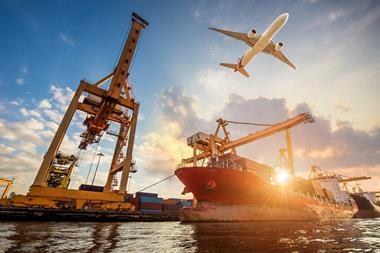
In the first of our 'How To' series, Tigers chief executive Andrew Jillings says that logistics companies should embrace disruption in the digital age
E-commerce logistics is a hot topic in the world of technology startups as digitalisation introduces opportunities for newcomers to enter the industry.
For many traditional freight forwarders and supply chain providers, this influx of new competition is alarming and viewed as disruption, but actually, it’s a game changer and should be welcomed with open arms.
Digital technology and e-commerce is revolutionising how people shop and how goods are transported from A to B, whether that means a shipment of laptops, clothing, or health supplements.
The latest, and most prominent changes to freight forwarding, are related to cross-border e-commerce, Blockchain and Big Data, and are inspiring tech startups to enter the logistics world.
Such developments are resulting in technology-enabled supply chain solutions and e-fulfilment, but without the necessary know-how about logistics and the infrastructure required for moving shipments internationally, the technology is wasted.
That’s where experience comes in, and why embracing digital technology and the boom in e-commerce is the way forward for established logistics companies.
For example, Blockchain has revolutionised the nature of online business transactions due to its groundbreaking potential to build digital trust.
E-commerce has opened up a whole new world for retailers and consumers, while creating a gold rush for warehouse space around the world.
And the use of Big Data is expected to change sourcing patterns, making it easier to ship directly from the source provider across international borders.
As with many traditional industries, the world of freight forwarding is at a crossroads right now, and the changing business landscape means that the days of a paper-based, closed network of logistics providers shipping from A to B is quickly becoming obsolete.
This has also coincided with new expectations that freight forwarders should deliver real-time updates to their customers as a shipment moves around the world.
Although this may be intimidating for traditional freight forwarders, it is actually nothing new in the world of online purchasing.
If consumers are provided with real-time delivery updates when ordering something as simple as a pizza, then why shouldn’t they receive the same level of service when ordering a shipment of high-value electronics? Or life-saving medicine?
Consumerism and expectations are changing, and we have to evolve with them.
With honesty, integrity, and a willingness to embrace digitisation, independent businesses can ensure they remain competitive as technology startups in the USA and South East Asia gravitate towards global logistics and attempt to disrupt from the outside.
The answer for established logistics businesses to remain relevant lies in cultivating knowledge gained from years of freight forwarding experience, while offering new services such as online portals, Expedia-style instant freight rate quote engines, and not being afraid to collaborate with ‘competitors.’
Digital technology is not just the future, it is the new normal, and it is time for the logistics industry to fully embrace it.















